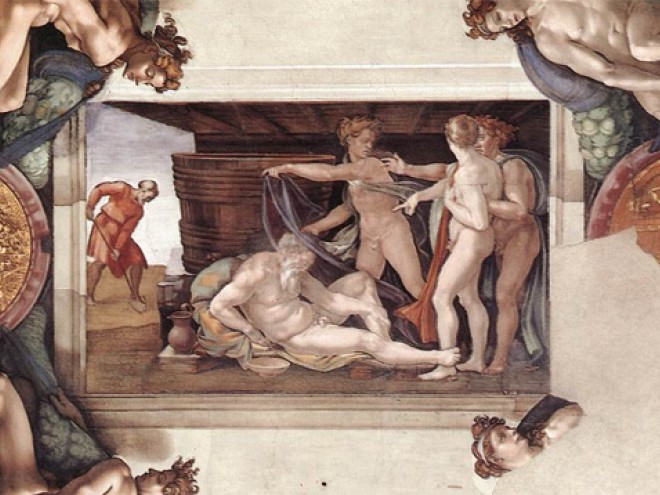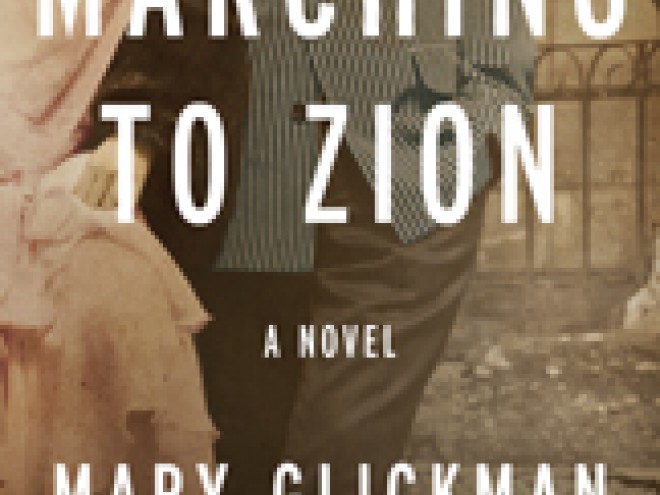The title refers to the old spiritual, One More River to Cross, and the story literally takes place near, around, and on the Mississippi River. Two men, father and son, Bernard Levy and Mickey Moe Levy, are each driven to extremes for the loves of their lives. The women, a beautiful black woman and a young Jewish woman, are unattainable to the men, but for different reasons. For Bernard in the south of the 1930s and 1940s it is obvious; for Mickey Moe Levy, in the 1960s, less so. He must prove to his girlfriend’s parents an acceptable Jewish bloodline to get permission to marry their daughter. Mickey’s family history went to the grave with his father in France during World War II. His quest to uncover the long kept secrets leads him into dangerous territory and ultimately reveals a formidable, brave, adventurous father as well as a determined, reliable son.
With fine craft, pivoting back and forth in time, the author illuminates
“Southern” Jews. They are recognizably southern in a regional, secular manner, familiar in a cultural sense, and, all too familiarly, seen as a group apart. We are with them as their lives precede and then coincide with two of the most fought over social issues of the twentieth century: the civil rights movement and the women’s movement. The Great Mississippi Flood of
1927 is both a backdrop for the intriguing plot and a foreshadowing of the enormous change to come to the South and to the country.
Interview
by Renita LastRenita Last: The characters in Home in the Morning and One More River have such strong distinct personalities. Did you use any role models in creati ng these well-defined men and women?
Mary Glickman: I don’t think I had specific role models in mind, but I’ve always been att racted to people who are capable of passionate devotions to causes and others. I admire those people with strong passions and high ideals. Perhaps they have a foolish and a courageous will to love and live honestly. In my mind, when such men and women come together and come up against life’s cruel realities, that’s when you have great drama born. Sometimes they’re crushed, but they retain their nobility and sometimes they succeed. I love people like this.
RL: Your book titles are taken from spirituals. Why?
MG: One of the reasons I use spirituals for the titles is that, for me, it emphasizes the connection of Jewish and African-American lives in the South as well as their being an important cultural touchstone. Jackson tells Li’l Bokay on their fateful truck ride together that, “You can’t grow up in the South without learning a spiritual or two.” That’s pretty much true. There are no set in stone lyrics for spirituals. Traditionally they are meant to be an improvisation on a theme where a worshipper is supposed to get up and burst into song with his own soul-felt imprint on the lyrics. This aspect of spirituals also impressed me when talking about a culture that is fixed in many ways, a culture obsessed by history and how an individual comes to live independently within it. That resonated for me. In the spiritual, Home in the Morning, the singer takes old sins, puts them on the shelf, and shakes himself and that rings to me of the Old South-New South transition.
RL: Why are the themes of love, family, friendship, and loyalty so important to you?
MG: Without loyalty love is meaningless. As far as I’m concerned it’s a cardinal virtue. To be loyal requires self-abnegati on and courage. It’s not the same thing as even being 100% faithful or supportive. But loyalties conflict and crises define which loyalty is stronger. That’s why I like to put my characters in extreme situations to test them. It’s very easy to delude oneself about one’s attachments until push comes to shove. Friendship is very important to me. One thing I want to talk about are relationships that last forever despite conflict and troubles along the way. Family members die, spouses die, and you are left with your friends. You need friendships for a life well lived.
RL: Your books beautifully evoke time and place through abundant descriptive language and detail. How important are Southern speech and storytelling in your writing? Is there any specific reason you don’t use quotation marks?
MG: Southern speech is magnificent. I love the way Southern speech lilts, the way it rises and falls. There’s a distinct creativity of metaphor that I haven’t seen in other parts of the country or it doesn’t hit me where it counts. It’s a springboard, an inspiration for me. When I started Home in the Morning I had this idea that I wanted it to sound like an oral narrative. As if someone were telling you a story on the front porch or by the fireplace. When someone tells you a story you don’t need them to be holding up their fi ngers making quote marks to tell you who is speaking. That idea intrigued me. It also allowed me to use patterns of speech that are not really correct in formal narrative. I thought I could capture the Southern métier much better this way.
RL: What first inspired your interest in Judaism? Where does your understanding of Jewish customs and traditions come from?
MG: I was always drawn to Judaism; even as a small child I was very much attracted to the Tanach. I remember as a young girl being taught by the good sisters who said that faith is a gift. When I got to be an adolescent I realized I didn’t get the gift , but my mother instilled in me a strong spiritual need. Joseph Campbell says religion is a music that speaks to the soul and Judaism was my soul’s music. It was no incidental air or etude in a minor key. Judaism wasn’t the only religion I investi gated to satisfy my innate needs, but it was where my soul’s poetry lay. I discovered the great Jewish writers and they struck a sympathetic chord in me. You could say the beauty of Talmudic logic and metaphor were first put to me by these writers of fiction.
RL: The positi on of Jews in Southern society, the differences between Northern and Southern Jews, and the tumultuous 1960’s are vividly presented in Home in the Morning. What is important for Northern Jews to know about Southern Jews? What is the “Yankee provincialism” you refer to?
MG: I started out by wanting to write about the South. I wanted to break that enormous wall of the redneck stereotype. When asked about “Yankee provincialism” I think about the fact that most of our great American writers were Southerners. I also started thinking about important differences between the Southern and Northern Jewish experience. I think the North is very insular, but has an intellectual sophistication. Northerners are generally ignorant about how the South works and its values and culture. Southern Jews have a long history of acceptance in the South and were more welcome in the dominant society. They were well entrenched and accepted, by and large, without comment. They also shared a common culture with Southern blacks. I also realized race is the great American sin. It is our original sin and should be the great American literary subject. I’ve been fascinated by trying to mix all these elements together.
RL: How do you think Southerners perceive Jews now? Do Jews still heed Bernard Levy’s grandfather’s warning to “never forget you are a Jew?”
MG: In the South, like anywhere else in the world, we tend to get the finger pointed at us in periods of crisis. I don’t think it does Jews anywhere well to forget they are a Jew no matter where they are. To forget that imperils us all. It is a truism of life. There hasn’t been a period of history Jews haven’t been discriminated against. I worry about young Jewish kids who don’t even have a cultural identity.
RL: Home in the Morning and One More River are tied together by plot and characters. Will your future writings be about the South? What are you working on now?
MG: I have a working title for my next book, Women Alone, and I am using some characters from both my novels. I realized I have several women characters who spend significant periods of time without a man. The ways that these women cope and survive with their lives alone are diff erent because the cultural demands are diff erent in different eras. I want to explore what happened to these women during these times. I’m not far along, but I’m thinking about how I’ll knit them together. I plan to keep writing from my unique perspective as a Southern Jew.





